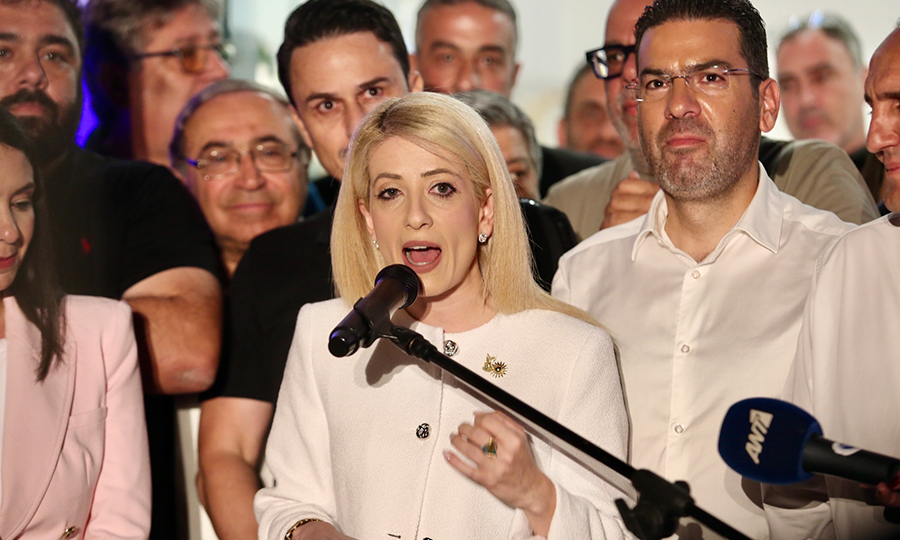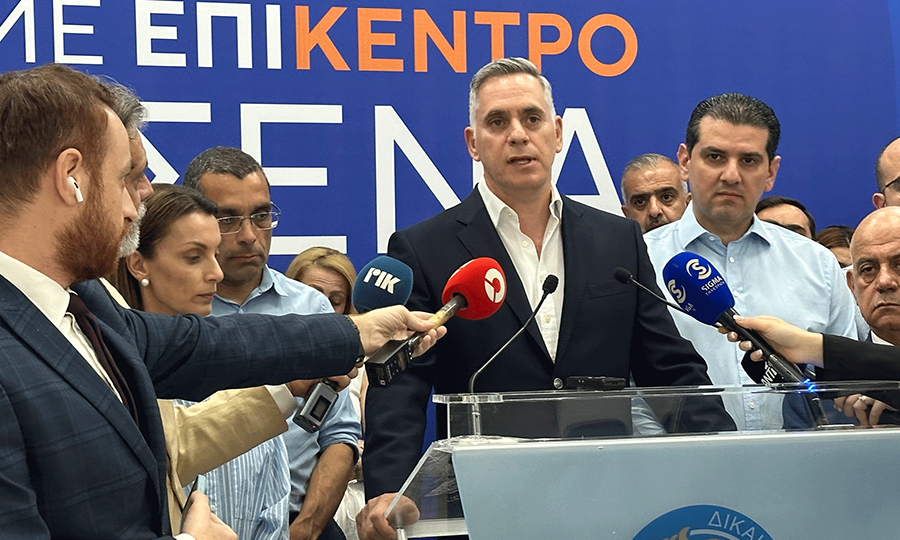

Marina Economides
"If you thought Fidias had no opinion on the Cyprus problem, you are wrong. He does. It was just better when he didn't," wrote a mocking Twitter user, posting a video of well-known YouTuber and independent candidate for the European elections, Fidias Panayiotou. In the video, Panayiotou suggested that Cyprus should stop negotiations and focus on becoming a very wealthy state, so rich that the Turkish Cypriots would then beg for a solution. This statement highlighted Mr. Panayiotou's complete ignorance of the Cypriot political scene and, for some, his incongruous presence in politics. However, this ignorance did not seem to negatively impact his candidacy. On the contrary, Fidias Panayiotou was the big - and only - winner of the European elections, managing to finish third with a double-digit percentage, coming close to the second party AKEL, and leaving both ELAM and DIKO far behind. Panayiotou's victory confirms the predominance of anti-politics in the political scene and the electorate's complete reaction to the existing political system.
Panayiotou suggested that Cyprus should stop negotiations and focus on becoming a very wealthy state, so rich that the Turkish Cypriots would then beg for a solution
Paving the way for post-politics
The dynamics of Fidias Panayiotou's candidacy have been evident for some time. His presence on the political scene should not have been so surprising. For a long time, parties and political figures had been laying the groundwork for a post-political phenomenon. The victory of Fidias Panayiotou confirms that Cyprus is on the threshold of anti-politics. The President of the Republic, Nikos Christodoulides, was elected while avoiding political stances, building a favorable profile on social media by presenting personal and family moments. Similarly, the Speaker of the Parliament and later President of DISY emphasized public relations in her TikTok and Instagram posts from events and social gatherings, consistently avoiding political positions. Other parties also favored post-politics, with personalities focusing on public relations rather than political statements. Given this environment, personalities like Fidias Panayiotou, adept at handling social media, managed to gain ground.
His presence on the political scene may not mark the beginning of a political movement, as has long been rumored. However, Christopher Tornaritis, who openly supported him, hinted that it might be the beginning. The next step remains to be seen.
First place in the European Elections, defeated in local elections
Annita Demetriou made a celebratory statement at the conclusion of the results, underlining that the Democratic Rally is the frontrunner. Indeed, DISY managed to finish first in a difficult battle, considering the party was recovering from the presidential election crisis and was on the verge of splitting. DISY's first place in the European elections is positive for its president, although there was a significant drop in ratings from the previous European elections (29.02%) and the 2021 parliamentary elections (27.7%). However, the results of the local elections were a complete debacle for DISY, confirming poor political choices and bad handling by the new leadership, which cannot be blamed on the previous state of affairs. DISY lost traditionally strong areas like Nicosia, despite support from DIKO and DIPA. It lost in Limassol with Nikos Nicolaides, came third in Larnaca - the city of the DISY president - with Michalis Pekris, and third in Strovolos with Christos Tsingis. Essentially, DISY won in Paphos with Phedonas Phedonos, Ayia Napa, and Paralimni. This should be a warning for DISY, not only for local level handling but also for future partnerships in 2028.
A straightforward defeat
AKEL is considered the big loser of the elections, with percentages dropping from the 2019 European elections (27.49%) and the 2021 parliamentary elections (22.34%) to 21.7%. The left-wing party had an ideal opportunity due to political circumstances to take the lead and increase its percentages, considering DISY was on the brink of splitting, and Intermediate parties were managing damage from the Christodoulides government. If AKEL could not win the elections now, when will it be able to? The reasons for their defeat vary:
- The party played a positive agenda strategy, avoiding confrontation and sending a message of complete political non-existence.
- It did not seek to set major stakes from the outset, either winning or losing the second seat, to rally both its party and the progressive audience.
- There were significant leaks to Fidias Panayiotou and the newly formed Volt.
- Heavy investment in the Turkish Cypriot vote, which fell below expectations.
- Selections like Anna Theologou caused confusion about the party's ultimate stance.
AKEL's local government success
Despite the defeat, AKEL managed to win in local government with Charalambos Prountzos in Nicosia, DIKO-affiliated Yannis Armeftis in Limassol, AKEL member Andreas Vyras in Larnaca, and Stavros Stavrinidis in Strovolos. These victories open the way for partnerships with the center-right in presidential elections. The profitability of such partnerships remains to be seen, given AKEL's and DIKO's current weakened states.
An uncertain future for the intermediary party
The Intermediary party is among the major casualties of the recent electoral battle, prompting discussions about its next steps. Questions loom over whether this defeat will intensify discontent within the government, prompt defections from its ranks, or spark talks of potential party mergers.
ELAM's victory
ELAM is undoubtedly a clear winner, increasing its percentages and securing a European Parliament seat with Geadis Geadi. Forecasts had placed ELAM in third place, but leaks to Fidias Panayiotou confirmed that votes for ELAM and Panayiotou are protest votes. The far-right party's emphasis on a conservative agenda, highlighting fears of immigration and the "woke" agenda, resonated with voters, resulting in a seat win. ELAM now aims to capitalize on its momentum, eyeing the 2026 parliamentary elections. The question is whether this momentum will open the door to consultations with the government, which is seeking allies after the Intermediate Space's crushing defeat.
[This article was translated from its Greek original]































